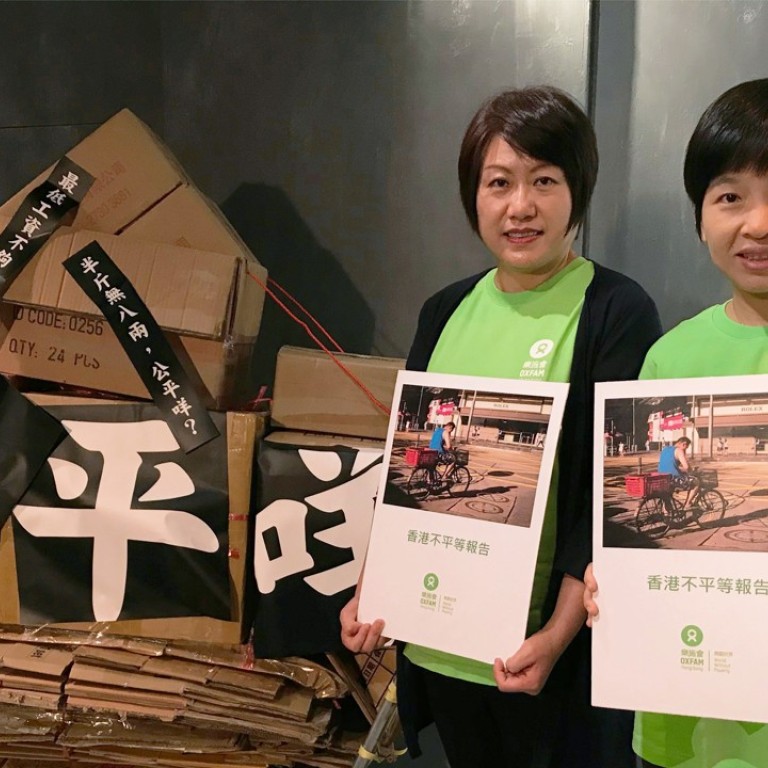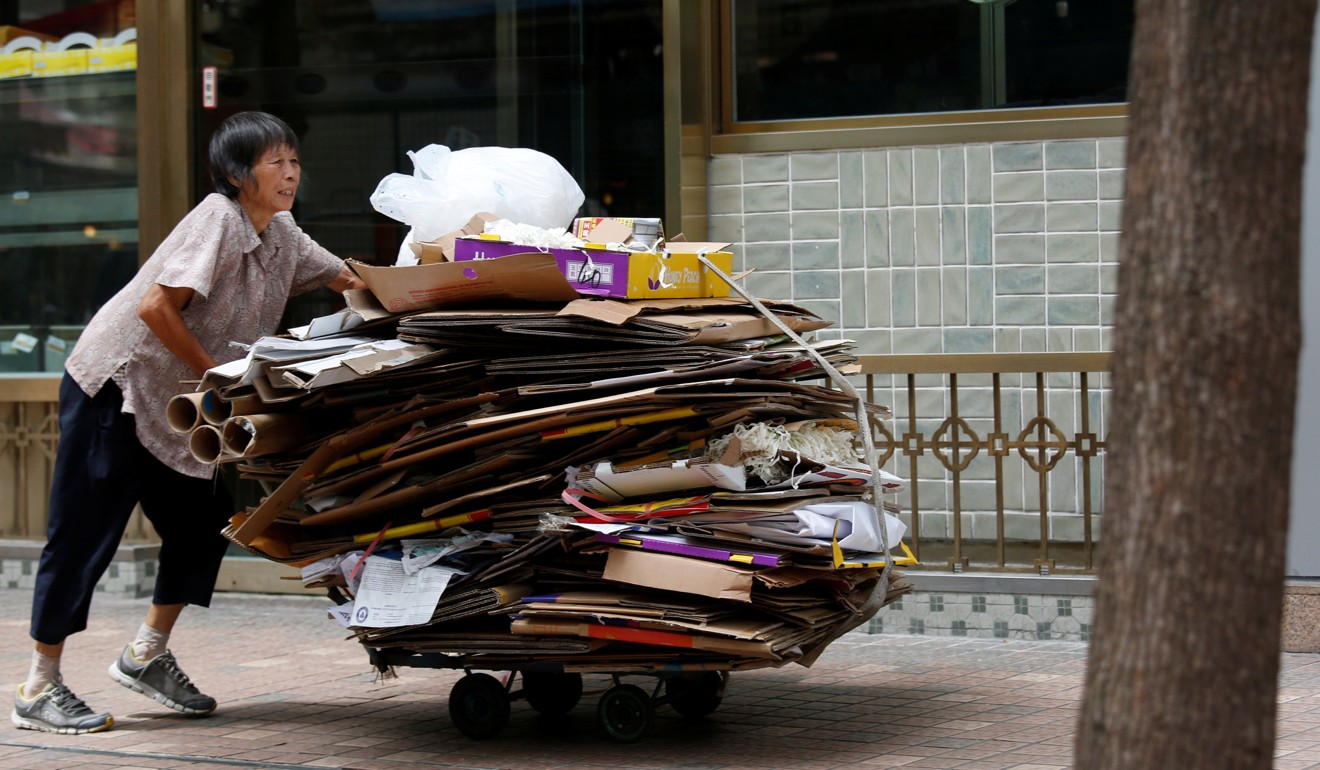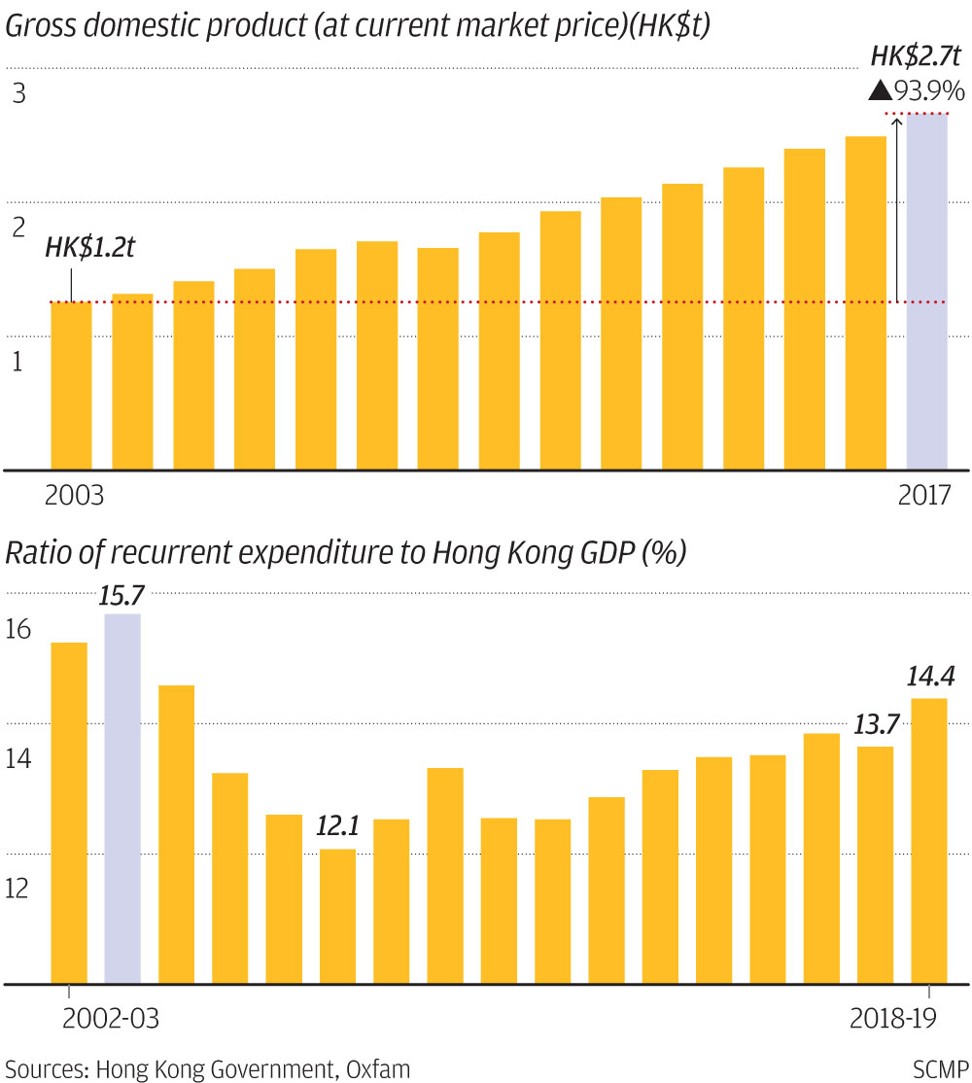
Wealthy Hong Kong can well afford to spend HK$36.7 billion more to narrow worsening inequality. Oxfam asks why it hasn’t
Money could be spent over three years to increase old age living allowances, boost nursing home places, offer more subsidised childcare and help ethnic minority students learn Chinese, aid agency says
An extra HK$36.7 billion (US$4.7 billion) should be set aside in next year’s budget to ease worsening inequality in Hong Kong, as that will also prevent more people from falling into poverty, aid agency Oxfam recommended on Tuesday.
The money could be spent over three years to increase old age living allowances, boost nursing home places, offer more subsidised childcare and help ethnic minority students learn Chinese. The government should also review the hourly minimum wage, now at HK$34.50, annually instead of every two years.

Hong Kong’s Gini coefficient – an index from 0 to 1 that measures the wealth gap – is at its highest since the city began keeping records on income equality 45 years ago.
“The Hong Kong government is not spending enough. It’s not only about poverty eradication, but they also need to think of it as an investment as well as to prevent poverty from happening,” said Kalina Tsang Ka-wai, head of Oxfam’s Hong Kong, Macau and Taiwan Programme.
‘Street stall grannies’ a sign Hong Kong elderly falling through cracks
Oxfam used official figures to show how the government’s recurrent expenditure – spending on education, social welfare and health – accounted for an estimated 14.4 per cent of the city’s gross domestic product in 2018/19, down from 15.7 per cent during 2003, when the city was hit by the Sars epidemic and the economy took a big hit.
“Hong Kong is such a wealthy city, but the government is so conservative when it comes to public spending,” Tsang said.
“If they could have afforded to spend so much during Sars when the economy was so bad, they can do better when our fiscal reserves have exceeded HK$1 trillion.”
According to government figures from 2016, the richest households earned about 44 times what the poorest family scraped together. That meant it would take the poor three years and eight months to earn what the richest made in a month.
‘Look at how low and degraded we are’: lives of Hong Kong street cleaners
One in five in Hong Kong, or 1.35 million people, lives below the city’s poverty line, according to the government’s latest statistics in 2016.
Last year, the government increased cash subsidies such as Comprehensive Social Security Assistance and Old Age Living Allowance, a pension scheme for the elderly, as part of its poverty-alleviation measures. However, it said it was getting increasingly difficult to reduce the poverty rate significantly in the face of a rapidly ageing population.
Lawmaker Shiu Ka-chun, who represents the social welfare sector, highlighted two priorities the government should target first.
One was a revamp of the calculation for social security assistance so it was no longer based on the median income, but rather on median expenditure.
Wake up to the crazy rich-poor divide in Hong Kong
“Last year, the government increased the allowance by HK$50, but that’s just a ridiculous amount,” Shiu said.
The other priority should be to increase places at nursing homes and homes for the disabled.
“Some 6,000 elderly people die each year waiting for care homes. Some wait at least 10 years for a space. This is not civilised at all considering we’re such a developed city,” he said.


